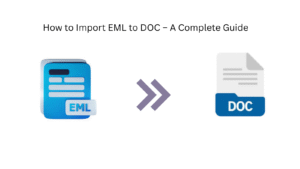
Imagine buying a suit right off the rack for an important event. Sure, it might fit okay, but it probably won’t hug your frame perfectly or match your exact style. The sleeves might be too long, the shoulders too tight, and you’ll likely need alterations to make it work. Now, think about this same concept in the world of business software. Off-the-shelf solutions promise convenience, but do they really fit your business like they should?
While pre-packaged software may seem like an easy choice, it often limits your business’s potential in ways you may not realize. Let’s explore why relying on off-the-shelf software could be holding your business back—and why a custom-built solution might be the smarter move.
1. One-Size-Fits-All Doesn’t Work for Every Business
Off-the-shelf software is designed to cater to a wide range of businesses. While this might sound like a positive, it often means sacrificing the specific features your business needs. Think of it like using a generic recipe instead of one crafted for your unique taste.
For instance, if you run an e-commerce store, you might need a CRM system that integrates seamlessly with your inventory management and marketing tools. Generic software might offer some of these features, but likely not in the way you need them. You’re forced to either work around its limitations or invest in additional plugins—both of which can lead to inefficiencies and frustration.
Real-Life Example:
A growing logistics company started with a popular off-the-shelf inventory management tool. As they scaled, they realized the software couldn’t handle their expanding fleet tracking needs. The workaround? Expensive third-party integrations and manual data entry. Had they opted for a custom solution from the start, they could have saved time and money.
2. Hidden Costs and Long-Term Expenses
Many businesses choose off-the-shelf software because it appears cost-effective. However, what they don’t factor in are the hidden costs. Licensing fees, add-ons, integration costs, and the time spent adapting to the software’s limitations all add up over time.
Moreover, subscription-based software often requires businesses to pay recurring fees. As your business grows and you need more users or advanced features, those costs can skyrocket. Compare that to custom-built software, where you pay upfront but have a solution tailored to your exact needs without excessive recurring expenses.
Real-Life Example:
A medium-sized accounting firm invested in a well-known financial management software. Initially, it seemed affordable, but as their team grew, they had to pay per-user fees, which became a financial burden. Switching to a custom solution eventually saved them thousands in annual costs.
3. Limited Scalability and Flexibility
Business needs evolve. What works today may not work a year from now. Off-the-shelf software often lacks the flexibility to grow with your business. Adding new features or scaling its capabilities might not be possible, leaving you with outdated technology.
With a custom solution, your software grows with your business. Need a new feature? It can be built in seamlessly. Expanding into a new market? Your software can be adapted to accommodate different regulations and business needs.
A Quick Thought:
Wouldn’t it be better to have a tool that molds to your business rather than forcing your business to mold to a tool?
4. Security Risks and Compliance Challenges
Data security is a major concern for businesses today. Off-the-shelf software is a common target for hackers because it’s widely used and attackers know its vulnerabilities.
Moreover, different industries have specific compliance requirements. If your software doesn’t align with your industry’s regulations, you could face fines or legal trouble. Custom-built software can be designed with industry-specific security protocols and compliance in mind.
Example:
A healthcare provider needed software that complied with strict patient data protection laws. Off-the-shelf solutions didn’t meet their compliance standards, forcing them to look for expensive add-ons. A custom solution, on the other hand, was designed with all legal requirements in place from day one.
5. Lack of Competitive Advantage
Your business is unique, so why use the same software as your competitors? Off-the-shelf software provides the same set of tools to everyone, meaning there’s little room for differentiation.
Custom-built software allows you to gain a competitive edge by offering features tailored to your workflow. You can automate processes that others can’t, provide better customer experiences, and operate more efficiently.
Imagine This:
Two competing restaurants use different ordering systems. One relies on a generic POS system, while the other has a custom-built platform that integrates reservations, orders, and inventory tracking. Which one do you think operates more smoothly and impresses customers more?
6. Inefficiencies and Wasted Time
How many times have you had to create unnecessary workarounds just to get a software solution to function the way you need? Off-the-shelf software often comes with features you don’t need while missing the ones you do.
This leads to wasted time, frustrated employees, and a less productive workforce. Instead of streamlining operations, it can actually slow them down.
A Quick Poll:
Would you rather adapt your workflow to fit your software, or have software that fits seamlessly into your workflow?
The Smarter Alternative: Custom Software Solutions
If your business is struggling with the limitations of off-the-shelf software, it may be time to consider custom-built solutions. With tailored software, you get exactly what you need—no more, no less.
Here’s why businesses are making the switch:
Perfect Fit: Software is designed specifically for your processes and goals.
Cost-Effective in the Long Run: No unnecessary add-ons or user fees.
Scalability: Easily adapts as your business grows.
Enhanced Security: Designed with industry-specific security measures.
Competitive Edge: Gives you unique features your competitors don’t have.
Conclusion
While off-the-shelf software might work for some businesses, it often comes with limitations that can slow down growth, increase costs, and reduce efficiency. Investing in custom software development in South Africa or other tailored solutions ensures that your business has the right tools to thrive, adapt, and stay ahead of the competition.
So, the real question is—are you ready to break free from the one-size-fits-all approach and invest in software that truly works for you?




